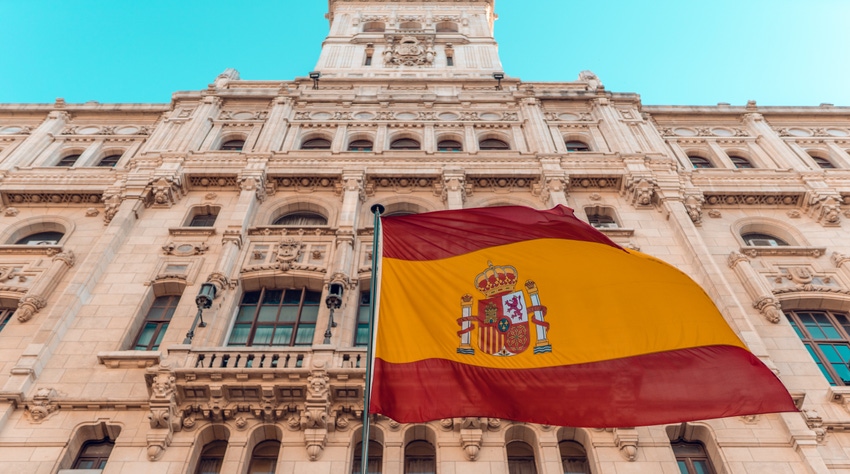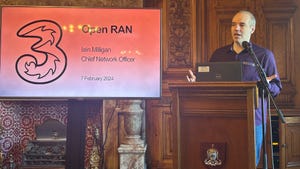Digi deal dials up hope for Orange, Másmóvil merger
Romania-based operator Digi confirmed it has reached a deal to buy spectrum assets within the framework of a potential merger agreement between Orange and Másmóvil in Spain.

Romania-based Digi Communications is emerging as something of a savior for Orange Group and Másmóvil as they pursue complex negotiations with the European Commission over their proposal to combine their respective operations in Spain in an €18.6 billion (US$20 billion) deal.
In a filing on the Bucharest stock market on Tuesday, Digi announced that it agreed to acquire spectrum assets from Orange and Másmóvil in a deal that could help them secure regulatory approval of the merger. Specifically, the group is acquiring 2x10MHz in the 1,800MHz band, 2x10MHz in the 2.1GHz band and 20 MHz in the 3.5GHz band for €120 million ($129.3 million).
Digi confirmed that the spectrum transfer agreement was concluded within the context of the merger negotiations between Orange-Másmóvil and the Commission. It also noted that a separate contract on the option of national roaming had been concluded with Orange Spain, allowing Digi Spain to access all mobile technologies of Orange and its affiliates.
However, it warned that the spectrum agreement and the national roaming option are both dependent on the approval and completion of the transaction between Orange and Másmóvil.
It has already been speculated that Digi would be the likely recipient of any assets or "remedies" that Orange and Másmóvil may be forced to offload to secure merger approval. Digi Spain currently provides mobile services via a wholesale agreement with Telefónica and is building a fiber network. The group also operates in Belgium, Italy and Portugal.
Orange and Másmóvil will certainly be keen to complete the merger as soon as possible. During Orange’s recent earnings call, Orange Group CEO Christel Heydemann expressed confidence that the transaction would be completed in the first quarter of 2024.
Up in the air
The negotiations have already been going on for several months. Orange and Másmóvil signed the merger agreement in July 2022 with the aim of creating a new fixed-mobile telecom heavyweight that will pose a challenge to market leader Telefónica.
If all goes to plan, the new entity will take the form of a 50-50 joint venture co-controlled by the two entities, with equal governance rights in the combined entity. It was also confirmed that Totem Spain, which holds Orange’s mobile tower assets, and Másmóvil Portugal will not be included in the transaction.
The merger is regarded as something of a test case to see if EU regulators have changed their stance on mergers. The Commission has typically been opposed to in-market mergers that reduce the number of players from four to three, and it remains to be seen if this attitude has changed even with the remedies that are now in place.
The Commission launched an "in-depth" and "wide‑ranging" investigation into the proposed transaction, and in June 2023 sent a statement of objections to both operators. However, on July 28, the Commission stopped the clock on its review of the merger while it sought additional information. Little has been divulged about the process since then.
It’s also not yet clear what impact the proposed sale by Vodafone of its Spanish operations to investment firm Zegona will have on the proposed merger.
Kester Mann, an analyst with CCS Insight, previously told Light Reading that the Commission "probably wanted some clarity on Vodafone’s long-term position in Spain before deciding" whether or not to approve the deal. Mann also described Orange/Másmóvil as a "crucial alliance for the European telecom sector as it could open the door to other tie‑ups if approved."
The GSMA recently called for more European Union leniency on telco mergers in the latest version of its annual European Mobile Economy Report.
It said market fragmentation has left "operators below the minimum viable scale to meet network investment targets," especially when it comes to 5G deployment. It wants to see a re-evaluation of EU merger policy, which would take into account the role of minimum long-term viable scale in markets with high fixed costs.
The Commission did recently wave through the planned merger of Vodafone UK with rival Three UK. However, since the UK officially left the European Union on January 31, 2020, the UK Competition and Markets Authority (CMA) is the primary body in charge of investigating the "anticipated joint venture" between Vodafone Group and CK Hutchison.
Read more about:
EuropeAbout the Author(s)
You May Also Like












